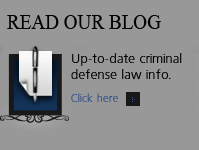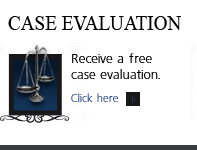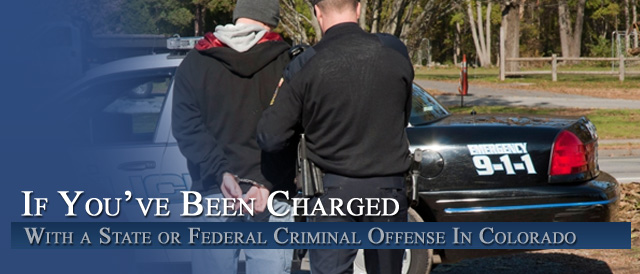

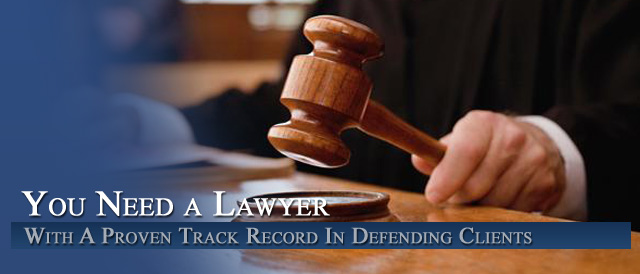
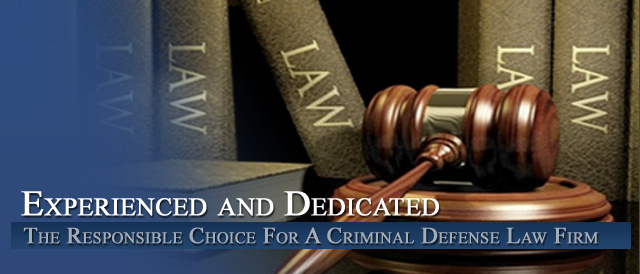
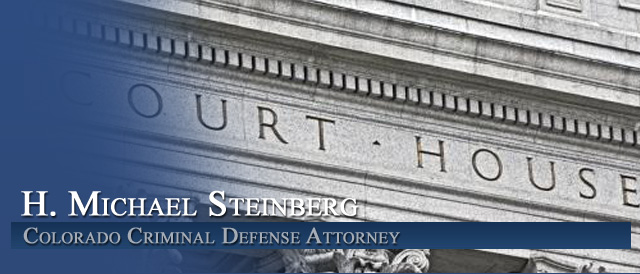
Colorado Criminal Law – Motions for Reconsideration of a Sentence – Asking a Judge To Change The Sentence Under Rule 35 (b)
Understanding the procedure that must be followed to request of a judge to change – lessen – a sentence that is overly harsh – is critically important for Colorado criminal defense lawyers to master. Judges often impose what I would call – attention getting sentences – with hard work in the jail or prison system – judges can be persuaded to change the sentence. Colorado Rule of Criminal Procedure 35(b) is the tool that permits the judge to make the change.
What Are Colorado Crim. P. 35(b) Proceedings?
Rule 35(b) of the Colorado Rules of Criminal Procedure allows a criminal defendant who has been convicted and sentenced to ask the sentencing judge to reconsider the sentence that the judge imposed on the defendant.
Pursuant to Crim.P. 35(b) the defendant may petition the court for reconsideration of sentence no later than 120 days after imposition of sentence, provided that the case is not on appeal. If on appeal, the 120 days commences after the mandate of the appellate court has issued.
This continues to be an area of difficulty for offenders and their counsel since they must often choose between an appeal or a prompt motion to reconsider. The Colorado Supreme Court has held that no motion to reconsider will lie while the case is on appeal, absent a remand from the appellate court.
The 120 Day DEADLINE To File
A defendant who seeks such a reconsideration of sentence must file a motion to reconsider within 120 days of the date of sentencing. If the case is appealed, a motion for reconsideration of sentence must be filed within 120 days of the date that the appellate court sends the case back to the trial court.
The Judge’s Right to “Delay Ruling”
A trial judge who receives a motion for reconsideration of sentence may deny the motion without a hearing, or may set a hearing on the motion. A trial judge cannot grant such a motion without giving the prosecutor an opportunity to be heard but may deny the motion without allowing the defendant to present any more information than the defendant presented in the motion itself.
This procedure gives the sentencing judge a second opportunity to consider the propriety of the sentence imposed. In the motion, and at the hearing if one is granted, the defendant will attempt to persuade the judge that there was evidence that the judge should have considered when imposing the sentence, or that there is new evidence that the judge should now consider, that justifies a lower sentence.
No Increase In Sentence Is Possible
A judge may not increase a sentence at this time.
The defendant can present to the judge any new evidence that is developed in the time between the original sentencing and the reconsideration. However, it is the responsibility of the court to rule on the motion within a reasonable time after its filing. The reasonable time is only that time reasonably necessary to decide the issue presented by the motion and not an opportunity to wait and reevaluate the sentencing decision in the light of subsequent developments.
Here is the Rule – Colorado Rule 35 in It’s Entirety:
Rule 35. Post conviction Remedies
(a) Correction of Illegal Sentence. The court may correct a sentence that was not authorized by law or that was imposed without jurisdiction at any time and may correct a sentence imposed in an illegal manner within the time provided herein for the reduction of sentence.
(b) Reduction of Sentence. The court may reduce the sentence provided that a motion for reduction of sentence is filed (1) within 120 days after the sentence is imposed, or (2) within 120 days after receipt by the court of a remittitur issued upon affirmance of the judgment or sentence or dismissal of the appeal, or (3) within 120 days after entry of any order or judgment of the appellate court denying review or having the effect of upholding a judgment of conviction or sentence. The court may, after considering the motion and supporting documents, if any, deny the motion without a hearing. The court may reduce a sentence on its own initiative within any of the above periods of time.
(c) Other Remedies.
(1) If, prior to filing for relief pursuant to this paragraph (1), a person has sought appeal of a conviction within the time prescribed therefor and if judgment on that conviction has not then been affirmed upon appeal, that person may file an application for postconviction review upon the ground that there has been a significant change in the law, applied to the applicant’s conviction or sentence, allowing in the interests of justice retroactive application of the changed legal standard.
(2) Notwithstanding the fact that no review of a conviction of crime was sought by appeal within the time prescribed therefor, or that a judgment of conviction was affirmed upon appeal, every person convicted of a crime is entitled as a matter of right to make application for postconviction review upon the grounds hereinafter set forth. Such an application for postconviction review must, in good faith, allege one or more of the following grounds to justify a hearing thereon:
(I) That the conviction was obtained or sentence imposed in violation of the Constitution or laws of the United States or the constitution or laws of this state;
(II) That the applicant was convicted under a statute that is in violation of the Constitution of the United States or the constitution of this state, or that the conduct for which the applicant was prosecuted is constitutionally protected;
(III) That the court rendering judgment was without jurisdiction over the person of the applicant or the subject matter;
(IV) Repealed.
(V) That there exists evidence of material facts, not theretofore presented and heard, which, by the exercise of reasonable diligence, could not have been known to or learned by the defendant or his attorney prior to the submission of the issues to the court or jury, and which requires vacation of the conviction or sentence in the interest of justice;
(VI) Any grounds otherwise properly the basis for collateral attack upon a criminal judgment; or
(VII) That the sentence imposed has been fully served or that there has been unlawful revocation of parole, probation, or conditional release.
(3) One who is aggrieved and claiming either a right to be released or to have a judgment of conviction set aside on one or more of the grounds enumerated in section (c)(2) of this Rule may file a motion in the court which imposed the sentence to vacate, set aside, or correct the sentence, or to make such order as necessary to correct a violation of his constitutional rights. The following procedures shall apply to the filing and hearing of such motions:
(I) Any motion filed outside of the time limits set forth in § 16-5-402, 6 C.R.S., shall allege facts which, if true, would establish one of the exceptions listed in § 16-5-402 (2), 6 C.R.S.
(II) Any motion filed shall substantially comply with the format of Form 4 and shall substantially contain the information identified in Form 4, Petition for Postconviction Relief Pursuant to Crim. P. 35(c). See Appendix to Chapter 29.
(III) If a motion fails to comply with Subsection (II) the court shall return to the defense a copy of the document filed along with a blank copy of Form 4 and direct that a motion in substantial compliance with the form be filed within forty-five days.
(IV) The court shall promptly review all motions that substantially comply with Form 4, Petition for Postconviction Relief Pursuant to Crim. P. 35(c). In conducting this review, the court should consider, among other things, whether the motion is timely pursuant to § 16-5-402, whether it fails to state adequate factual or legal grounds for relief, whether it states legal grounds for relief that are not meritorious, whether it states factual grounds that, even if true, do not entitle the party to relief, and whether it states factual grounds that, if true, entitle the party to relief, but the files and records of the case show to the satisfaction of the court that the factual allegations are untrue. If the motion and the files and record of the case show to the satisfaction of the court that the defendant is not entitled to relief, the court shall enter written findings of fact and conclusions of law in denying the motion. The court shall complete its review within sixty days of filing or set a new date for completing its review and notify the parties of that date.
(V) If the court does not deny the motion under (IV) above, the court shall cause a complete copy of said motion to be served on the prosecuting attorney if one has not yet been served by counsel for the defendant. If the defendant has requested counsel be appointed in the motion, the court shall cause a complete copy of said motion to be served on the Public Defender. Within forty-five days, the Public Defender shall respond as to whether the Public Defender’s Office intends to enter on behalf of the defendant pursuant to § 21-1-104 (1) (b), 6 C.R.S. In such response, the Public Defender shall identify whether any conflict exists, request any additional time needed to investigate, and add any claims the Public Defender finds to have arguable merit.
Upon receipt of the response of the Public Defender, or immediately if no counsel was requested by the defendant or if the defendant already has counsel, the court shall direct the prosecution to respond to the defendant’s claims or request additional time to respond within thirty days and the defendant to reply to the prosecution’s response within twenty days. The prosecution has no duty to respond until so directed by the court. Thereafter, the court shall grant a prompt hearing on the motion unless, based on the pleadings, the court finds that it is appropriate to enter a ruling containing written findings of fact and conclusions of law. At the hearing, the court shall take whatever evidence is necessary for the disposition of the motion. The court shall enter written or oral findings either granting or denying relief within sixty days of the conclusion of the hearing or provide the parties a notice of the date by which the ruling will be issued.
If the court finds that defendant is entitled to postconviction relief, the court shall make such orders as may appear appropriate to restore a right which was violated, such as vacating and setting aside the judgment, imposing a new sentence, granting a new trial, or discharging the defendant. The court may stay its order for discharge of the defendant pending appellate court review of the order. If the court orders a new trial, and there are witnesses who have died or otherwise become unavailable, the transcript of testimony of such witnesses at the trial which resulted in the vacated sentence may be used at the new trial.
(VI) The court shall deny any claim that was raised and resolved in a prior appeal or postconviction proceeding on behalf of the same defendant, except the following:
(a) Any claim based on evidence that could not have been discovered previously through the exercise of due diligence;
(b) Any claim based on a new rule of constitutional law that was previously unavailable, if that rule has been applied retroactively by the United States Supreme Court or Colorado appellate courts.
(VII) The court shall deny any claim that could have been presented in an appeal previously brought or postconviction proceeding previously brought except the following:
(a) Any claim based on events that occurred after initiation of the defendant’s prior appeal or postconviction proceeding;
(b) Any claim based on evidence that could not have been discovered previously through the exercise of due diligence;
(c) Any claim based on a new rule of constitutional law that was previously unavailable, if that rule should be applied retroactively to cases on collateral review;
(d) Any claim that the sentencing court lacked subject matter jurisdiction;
(e) Any claim where an objective factor, external to the defense and not attributable to the defendant, made raising the claim impracticable.
(VIII) Notwithstanding (VII) above, the court shall not deny a postconviction claim of ineffective assistance of trial counsel on the ground that all or part of the claim could have been raised on direct appeal.
(IX) The order of the trial court granting or denying the motion is a final order reviewable on appeal.
Source: (c)(3) amended and adopted September 4, 1997, effective January 1, 1998; (c)(3) amended and committee comment added January 7, 1999, effective July 1, 1999; entire section amended and adopted and committee comment repealed January 29, 2004, effective July 1, 2004; (c)(3)(VIII) corrected May 25, 2004, nunc pro tunc January 29, 2004, effective July 1, 2004; (c)(3)(I), (c)(3)(II), (c)(3)(IV), and (c)(3)(V) corrected June 25, 2004, nunc pro tunc January 29, 2004, effective July 1, 2004; (c)(3)(II) and (c)(3)(III) amended and effective December 11, 2008.
Other Articles of Interest:
- Colorado Criminal Law – Asking a Judge to Change a Sentence – a Sentence Reconsideration – Under Colorado Rule of Criminal Procedure 35(b)
- A Case Timeline
- Anatomy of a Colorado Trial
- Anatomy of a Trial
- Colorado Criminal Juvenile Law – The Strategy Behind Filing Pre-Trial Motions – Juvenile Criminal Defense

